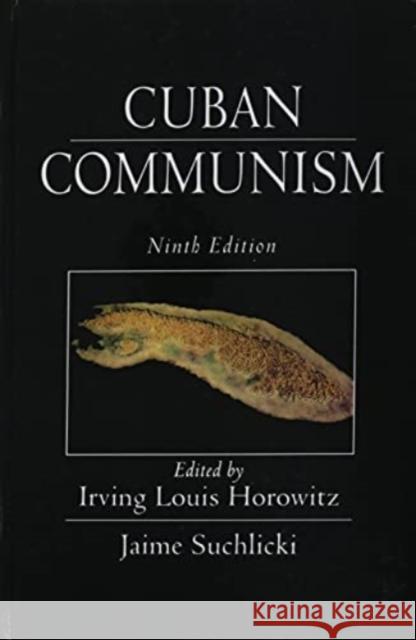Cuban Communism » książka
Cuban Communism
ISBN-13: 9781138521629 / Angielski / Twarda / 2020 / 894 str.
Cuban Communism
ISBN-13: 9781138521629 / Angielski / Twarda / 2020 / 894 str.
(netto: 557,46 VAT: 5%)
Najniższa cena z 30 dni: 554,12
ok. 22 dni roboczych
Bez gwarancji dostawy przed świętami
Darmowa dostawa!
Cuban Communism has widely come to be known as “the Bible of Cuban Studies." It has been updated and upgraded for the fortieth anniversary of Castro's successful seizure of power, which has been termed the longest running dictatorship in the world. In addition to articles and essays representing recent developments in Cuba, the work boasts three new features that will make it even more important to students, scholars, and researchers in the area.The volume has many new chapters on future prospects for Cuba in a post-Castro environment. It also contains a chronology of events from 1959 through 1997 that will be important as a guide for studying the period. Finally, the work contains a brief but carefully constructed who's who of important players in Cuba and the regime during the Castro period.Some of the articles new to the ninth edition of Cuban Communismare: "Cuba and the United States: Back to the Beginning" by Mark FalcofT; “After Fidel, What? Forecasting Institutional Changes in Cuba” by Josep M. Colomer; “Decentralization, Local Government and Participation in Cuba” by Nelson Amaro; “Cuba’s Transition: Institutional Lessons from Eastern Europe” by Michael Radu; and “The United States and Cuba Agenda" by Pamela S. Falk. This edition sheds new light on why, despite predictions of imminent collapse, the Castro regime has remained in power. It offers insights into the staying power of dictatorships and illegitimate regimes despite crisis and ostracism. It is, more than ever, a must volume for those interested in comparative political systems and social structures.











